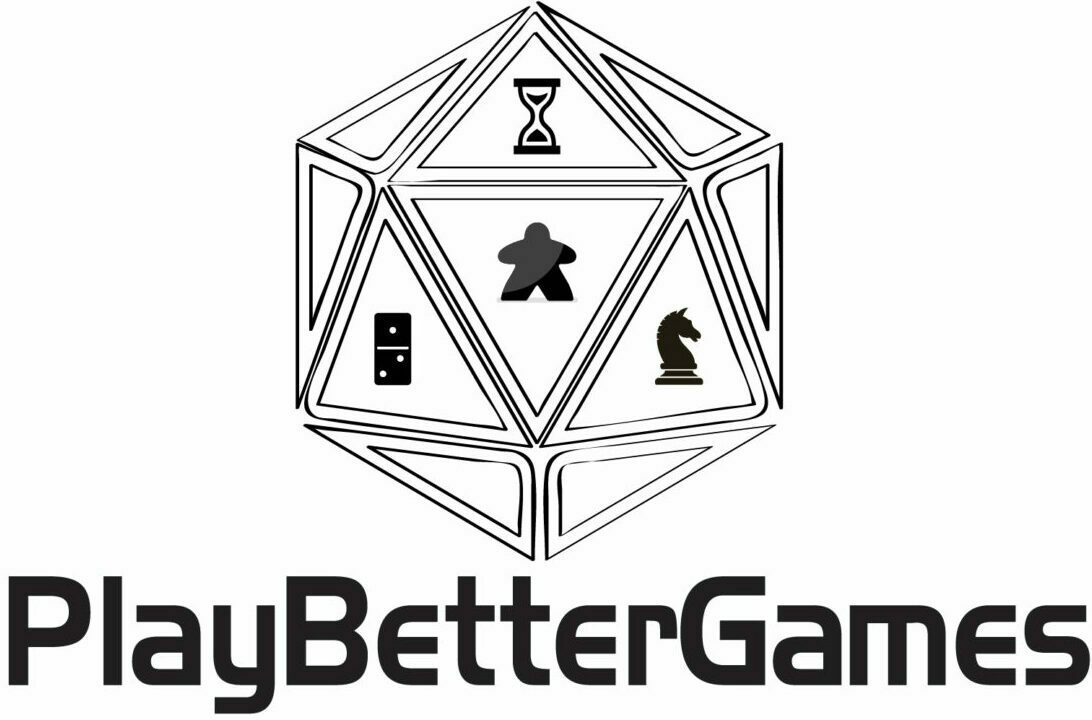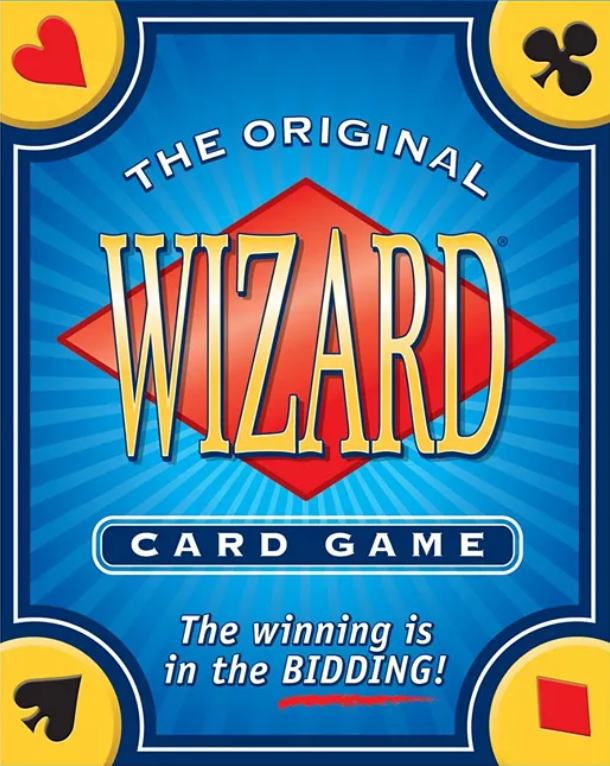If you enjoy trick taking games like Spades or Euchre you’ll love Wizard. This Wizard card game for 3-6 players created by game designer Ken Fisher and originally released in 1986. This game frequently hits our table, especially at family gatherings. The game is well balanced and elegantly designed. By adding just two additional card types to a standard deck the player’s strategic options are improved significantly, and the scoring is designed to reward players who make larger bids.
How to play Wizard?
The object of the game is to correctly guess the number of tricks you will take in the round. Players who successfully take the number of tricks they bid are awarded 20 points, plus 10 points for every trick taken. Players who bid incorrectly lose ten points for every trick they miss by (whether they go over, or come up short).
The game played with standard deck with the addition of four Wizard cards and four Jester cards. Wizards are the highest card in the deck; Jesters are the lowest. If two Wizard cards are played on the same trick, the first wizard played wins. As with most trick taking games players must follow suit, but they don’t have to follow suit if they are playing one these cards.
The game consists of 10-20 rounds depending on the number of players. In the first round each player is dealt a single card and they receive and additional card every round. After the cards are dealt, the top card of the deck is turned over to determine which suit is trump. If a Wizard is turned over, the dealer gets to choose the trump suit, if a Jester is turned over there is no trump and the highest card of the suit lead will take the trick (Wizards still beat all).
After looking at their cards, each player predicts how many tricks they believe they will take, ranging from zero to the total number of cards dealt. This is recorded on a score pad.
Play then starts with the player to the left of the dealer; any card can be led. The highest card (Ace is high) of the suit led takes the trick. Don’t forget about the Wizard cards though! The Wizard card beats everything else; the first Wizard played is guaranteed to take the trick. The Jester is is guaranteed to not take the trick and can be a good out since you can play it even if you have the suit led.
What the players must play depends on the card led
- If a Wizard is led, players can play anything they want
- If a Jester is led, players must follow the suit of the first card played that has a suit
- If any other card is played, players must follow suit
How the Wizard Card Game is Scored?
At the end of the round players score points if they take exactly the number of tricks they bid. Players score 20 points for making their bid, plus 10 points for every trick taken. This scoring mechanism encourages players to make higher bids. Players who miss their bid lose 10 points for every trick they are off by (whether they are over or under).
It was recently pointed out to me that I have been scoring this game wrong for YEARS! I was scoring it that you only got points if you called your bid exactly (and going backward 10 for each trick you missed). This is not how the game is scored. You get 10 points per trick you take, minus 10 points for every trick you are over/under you bid, with a BONUS 20 points if you hit your. bid exactly. For example:
| Number of Tricks Called | Number of Tricks Taken | Score for the Hand |
| 4 | 4 | 60 (4 x 10 + 20) |
| 4 | 3 | 20 (3 x 10 – 10 + 0 ) |
| 4 | 6 | 10 ( (4 x 10) – (2 x 10) + 0 ) |
The way I was scoring it makes the game MUCH harder, but that’s how a very similar. game I grew up playing called Blackout. is scored (you get nothing if you don’t hit your bid) so I had made the assumption this was scored similarly. My friends said we could make this a variant called “Hard Mode” or “Lizard”. Feel free to give it a try! 🙂
How do I know if I’ll like Wizard?
If you’re a fan of trick taking games like Spades, Euchre or Black Out you will most likely like Wizard. The addition of the Wizard and Jester cards add some additional strategic choices since you can play them even if you have the suit led. You will most likely also enjoy Wizard if you are a fan of Five Crowns, the games are. different but they both have an increasing hand size each round and you have to think through the strategy in a way that feels similar.
Can you play Wizard with two players?
The original Wizard card game requires a minimum of three players, but they now make a version that can be played with two players. The two player version is actually called Two Player Wizard. The rules are quite a bit different but we found it interesting. I’d definitely buy the original Wizard card game over the two player version unless you frequently play with only two players. If you’re looking for a trick taking game specifically made for two players I would recommend Fox in the Forest.
Can you play Wizard online?
Our goal is to encourage people to play games together, in person, but yes you can play Wizard online at sites like BoardGameArena. Playing online is a good way to confirm that you like the game before buying a physical copy.
Is Ace high or low in wizard?
In Wizard the Ace is high. The only card that will beat it is a wizard.
Is the game Wizard worth the money?
Yes, the game is pretty inexpensive, you should be able to find it for less that $10. Like any card game that is played frequently the cards will eventually wear out, but they are inexpensive to replace. We have played so much that we have worn out several decks and bought replacements. It’s also a game you can usually find in drug stores or in stores like Walmart so if you are looking for a good game to pickup while on vacation, this one is usually pretty easy to find.
Final Thoughts
The Wizard card game is a classic. We have worn out several decks and bought replacements over the years It was even fun all of those years I was scoring it wrong (luckily Christin usually keeps score so most of the time is was scored correctly). If you’re looking for a good trick taking game I recommend giving Wizard a try. It’s simple to learn, yet has enough strategy to keep things interesting. And it’s just fun to say “I bid 9 tricks” … and take them all!

